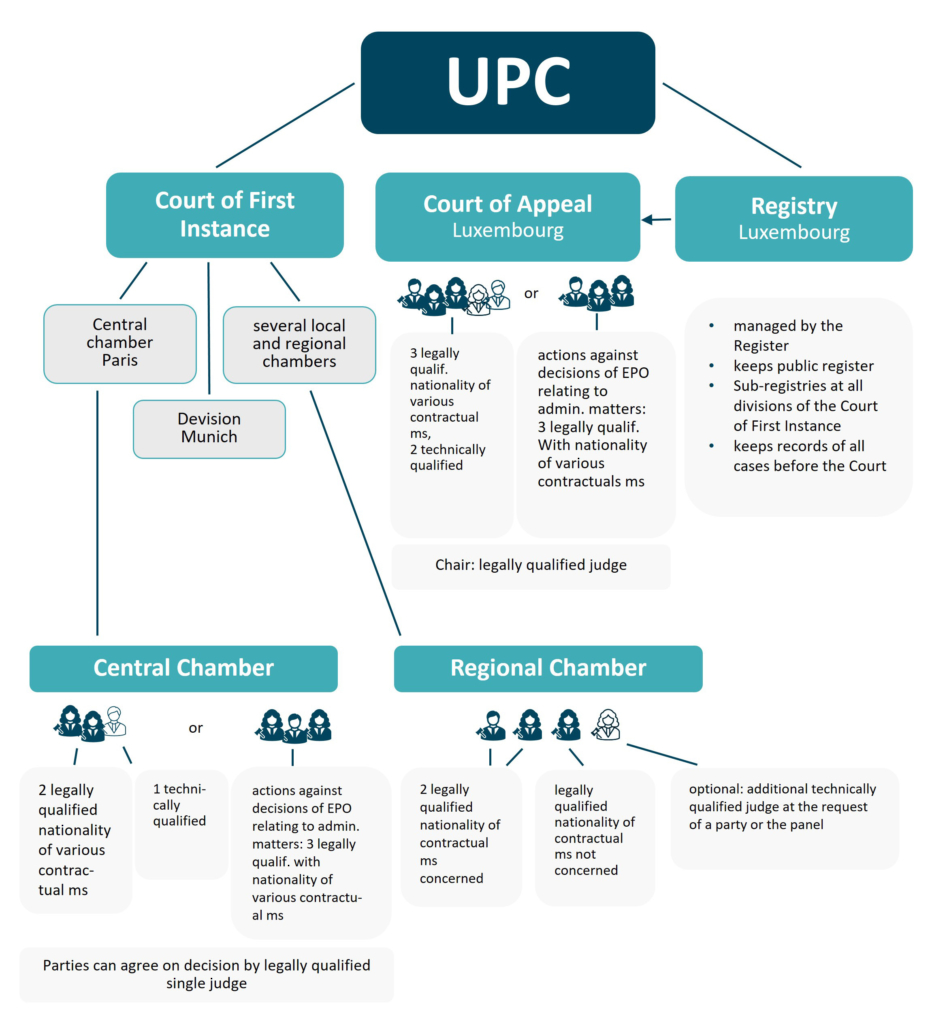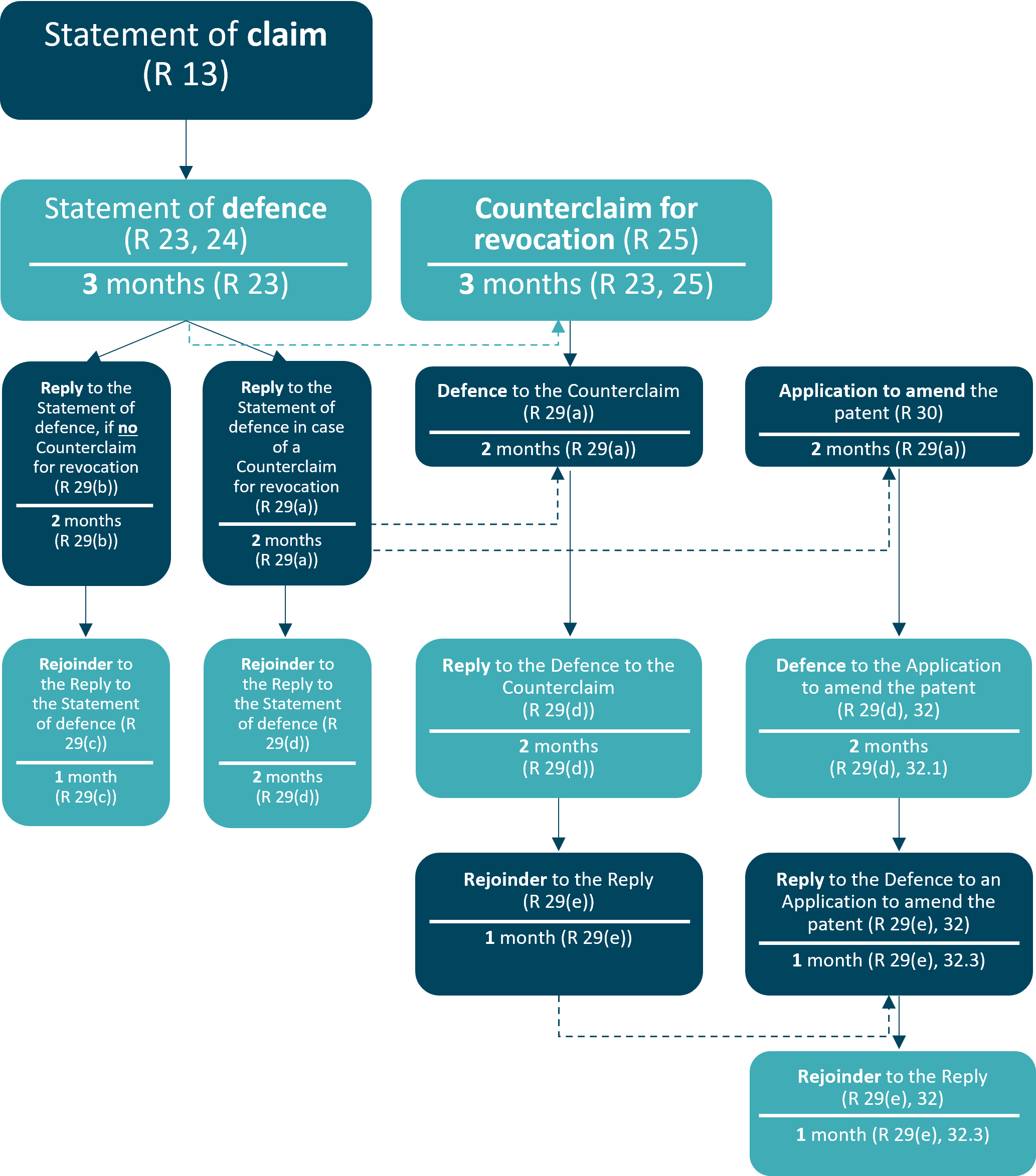Interplay between infringement and revocation proceedings in the Unitary Patent System
In the Unitary Patent System, the Unified Patent Court (UPC) has jurisdiction over both infringement and revocation actions. However, under certain conditions, an infringement action and a parallel revocation action may be decided by different divisions of the UPC.
In the Unitary Patent System, claims for injunctive relief and damages arising from European patents can be enforced in several EU countries through centralized infringement proceedings before the Unified Patent Court (UPC). As a defense against such infringement actions, the validity of the patent may be challenged.
The validity can be challenged (irrespectively of whether an infringement action is pending) by means of an opposition against the European patent with the European Patent Office (within the opposition period). Apart from this, it is possible to file (even after opposition proceedings before the European Patent Office have been concluded) a national revocation action against a national part of the European patent (during the transitional period of seven years after the Unitary Patent System comes into force), and a revocation action before the UPC against the Unitary Patent or the parts validated in the member states of the Unitary Patent System. In addition, when an infringement action is pending before the UPC, the validity of the Unitary pPatent can be challenged by means of a revocation counteraction.
In the German patent system the bifurcation principle applies, according to which infringement and revocation actions are decided by different courts. By contrast, in most other European patent systems one and the same court can jointly decide on both infringement and validity. In the Unitary Patent System, these two principles are combined: On the one hand, the UPC has jurisdiction over both infringement and revocation actions, while on the other hand, an infringement action and a parallel revocation action may under certain conditions be decided by different divisions of the UPC. Namely, the local or regional division before which the infringement action is pending may, after hearing the parties, decide at its discretion to:
a) proceed with both the infringement action and the revocation counteraction while allocating a technically qualified judge,
b) refer the revocation counteraction for decision to the central division and suspend or proceed with the infringement action, or
c) with the agreement of the parties, refer the entire case for decision to the central division.
Thus, in cases a) and c), infringement and validity are decided by the same division, whereas case b) corresponds in a way to the German bifurcation principle. However, whether in particular the German local divisions, which are expected to receive most infringement actions in Europe, will choose alternative b) and thus relinquish competences assigned to them, may be doubted, but it remains to be seen how the courts will handle this in practice. Furthermore, the patent proprietor will in general not agree to alternative c), because he has already decided to file the infringement action with the respective local or regional division, and the transfer to the central division could delay the case.
The situation is more complicated if an independent revocation action is pending before the central division and the patent proprietor only subsequently files an infringement action before a local or regional division against the plaintiff in the revocation action, so that the revocation and the infringement proceedings are initially separated. In this situation, the plaintiff in the revocation action (defendant in the infringement action) may file a revocation counteraction in addition to its central revocation action. The central revocation proceedings are then in general suspended, and the local or regional division may proceed at its discretion as described above. For example, it may then reconnect the two actions according to options a) or c). However, in exercising its discretion, the local or regional division must take into consideration the status of the central revocation proceedings.
Finally, infringement proceedings before the UPC may also be suspended if there are pending invalidity proceedings before the European Patent Office or a national authority, at least when a decision in the invalidity proceedings may be expected to be given rapidly.
| Local or regional division decides at ist discretion: | Revocation counteraction | Infringement action |
|---|---|---|
| a) | Proceed | Proceed |
| b) | Refer to central division | Proceed |
| b) | Refer to central division | Suspend |
| c) (with agreement of the parties) | Refer to central division | Refer to central division |

